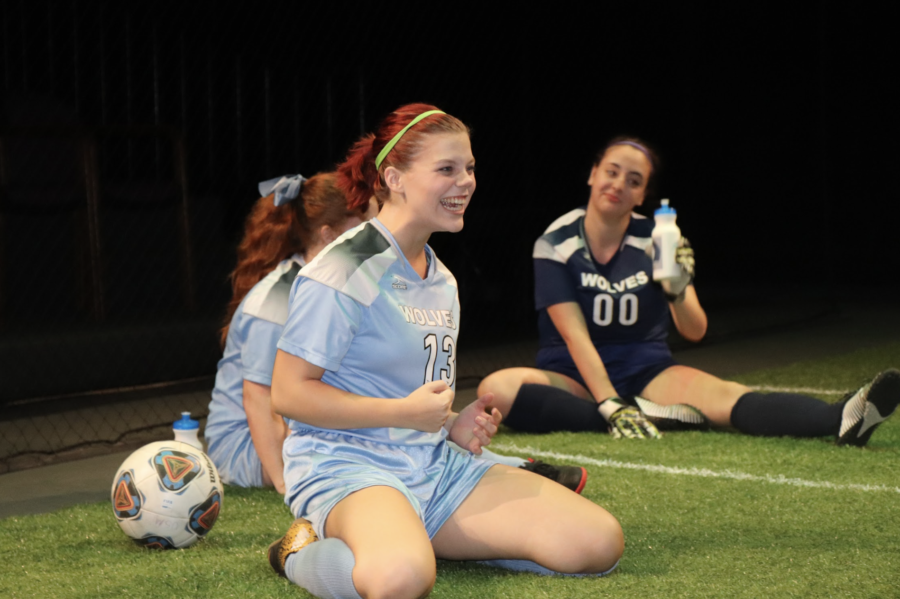Southern Miss Theater’s production of “The Wolves” was a surprisingly entertaining and heartfelt play that had the audience on their feet and applauding. “The Wolves” is perfectly timed in an age of political correctness and teenagers raising their voices about multiple issues.
Written by award-winning Sarah Delappe, Southern Miss Theater’s production of “The Wolves” was directed by Caitlyn Herzlinger in Gilbert F. Hartwig Theater from October 31 to November 3.
The play chronicles a group of nine high school girls who play together on a soccer team called the wolves. The girls do not have names and are only referred to as numbers on their jerseys. A majority of the play is dialogue between characters as they practice and stretch on the field. The girls discuss world politics, sexuality and winning the championship.
Walking in blind, an adult play about girls playing soccer seemed perplexing. From the first scene, we are thrust into the chaos of high school as characters have different or overlapping conversations simultaneously. We are quickly introduced to the distinct personalities of the ensemble of young girls as they progress from adolescence to adulthood.
The set design further subverts expectations with lights and design. The theater is dressed like a soccer court and mostly lit with greens and blues, adding to the naturalistic and gritty atmosphere of the play. Nets shield the audience from being hit in the head with real soccer balls. Yet the characters are caged in and disconnected from the audience; the only thing that matters to them is staying on the field in solidarity because it is the only space they feel free.
The title suggests that teenagers are a lot stronger than we give them credit for and are often misunderstood. Herzlinger directed a play with written voices of a particular group that we hear very little of besides being the stereotype we often associate with teen girls. The characters do talk about boys, dating and gossip, but they also voice their opinions on political subjects like terrorism and war. They even navigate through adult issues that are prevalent to young women such as sexual assault and reproductive rights.
All of the performances were impressive given how physically challenging the roles must be. The actresses had wonderful control over their bodies with detailed physicality to their characters and particularly while performing soccer moves.
The stand out performances were Elizabeth Beagley as player #13, the loveable jokester of the group, and Ellie Boykin as #11, the high-strung know-it-all. Both are great comic relief that never go overboard or become irritating. Their delivery of jokes always lands and when scenes become serious they convey convincing emotion. Especially for Elizbeth Beagley as she applies subtle, realistic gestures like towards the end when she silently breaks down for a second and immediately regains composer. Overall, there was not a weak performance and the chemistry between the actresses was strong and magnetic.
The only glaring critic of the production is the choice of music between some of the scene transitions. Some of the music did not end smoothly or did not fit the atmosphere of the production. The songs try to serve pop, upbeat music suited to represent what the characters might listen to, but it presented itself as jarring and slightly out of touch.
After spending all that time with the characters, it was saddening to know it was going to end because they are just so charming and relatable. The production was a great selection by the theater department and an enjoyable eye-opener.
































